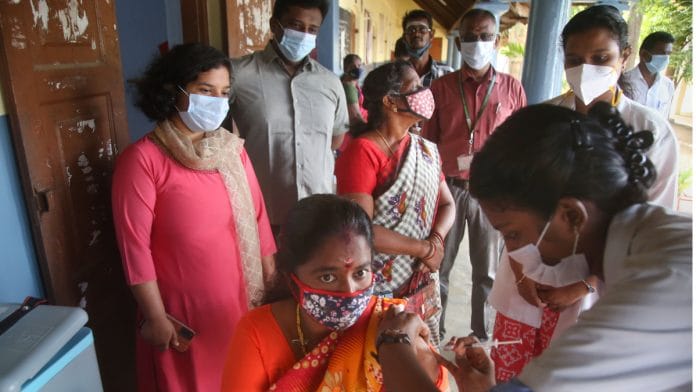New Delhi: At least one-third of Muslims and over 20 per cent Dalits and Adivasis said they have been discriminated on the grounds of religion, caste, or because of illness in a hospital or by a healthcare professional, according to a survey by Oxfam India.
The survey — titled ‘Securing Rights of Patients in India’ — provides a perspective on the plight of patients and citizens in the healthcare system. It was released Tuesday.
According to the survey, as many as 58 per cent of respondents said they were not provided with an estimated cost of treatment or procedure before it was started when they or their close relatives were hospitalised in the past 10 years.
Thirty-one per cent respondents reported being denied case papers, patient records, investigation reports for treatment or procedure by the hospital even after requesting.
Thirty-five per cent of the women surveyed said that they underwent physical examination by male attendant without a female present in the room.
The first part of the survey — conducted between February and April 2021 — covered the rights of patients against some of the provisions of the Patients’ Rights Charter (PRC), and received 3,890 responses. The second part of the survey, which covered India’s Covid vaccination drive, was done between August and September 2021. It received 10,955 responses.
“The Oxfam India surveys show that the basic rights of patients in India are being routinely denied in healthcare facilities, for the poor and middle class alike,” the organisation’s CEO Amitabh Behar said in a statement.
“Skewed power dynamics with respect to class, caste, religion, and gender between the healthcare providers and patients deepen existing structural inequalities in the healthcare system,” Behar said.
“The Patients’ Rights Charter drafted by Ministry of Health and Family Welfare needs to be immediately adopted by state governments along with robust grievance redressal mechanisms to provide citizens with recourse when things go wrong,” he added.
Also read: ‘Die in 2 yrs, become a monkey’: Why this Nagaland district has India’s lowest vaccine coverage
On vaccination
As many as 74 per cent respondents earning less than Rs 10,000 per month and over 60 per cent respondents from marginalised and minority communities felt that the government failed to inform them about how and when to get vaccinated.
While 9 per cent of respondents said they had to lose a day’s wage to get themselves vaccinated, 43 per cent reported that the vaccination centres had run out of vaccines.
“It is crucial to note that India does not maintain records of people vaccinated disaggregated by income or social group which would have been critical to tailor strategies to the specific population needs,” Anjela Taneja, advocacy lead at Oxfam India, said in a statement.
“Almost one out of ten people said they had to lose a day’s wages to get themselves vaccinated. Any commitment to equity on the vaccination drive would accordingly need to be rooted in an effort to track the relative progress of vaccination for India’s rich and poor in the various social groups,” Taneja added.
(Edited by Neha Mahajan)
Also read: You are an OBC if you score 11/22 — We traced nearly 100 years of caste in Indian census






